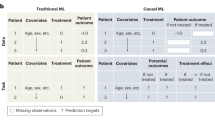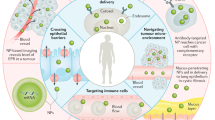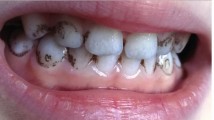Abstract
The use of biologics in medicine is on the rise. As dental professionals, it is becoming increasingly important that we are aware of this class of medications and the theoretical risks that they pose specific to the oral cavity to ensure safe delivery of dental treatment. This paper discusses some of these risks and recommendations to follow to manage patients undergoing oral surgery specifically.
Key points
-
Patients on biological therapy are a vulnerable patient cohort. The reader should understand the importance of shared care with the prescribing physician.
-
Patients on biological therapies may be at risk of complications or undesirable effects, including infection, osteonecrosis of the jaw, osteomyelitis and coagulation disorders.
-
The British Society of Rheumatology have issued guidance to help confidently and appropriately manage these patients. For major elective procedures, the guidelines advise withholding a biologic dose and scheduling surgery based on the specific drug‘s half-life, which may minimise post-operative infection concerns.
This is a preview of subscription content, access via your institution
Access options
Subscribe to this journal
Receive 24 print issues and online access
$259.00 per year
only $10.79 per issue
Buy this article
- Purchase on Springer Link
- Instant access to full article PDF
Prices may be subject to local taxes which are calculated during checkout
Similar content being viewed by others
References
Radfar L, Ahmadabadi R E, Masood F, Scofield R H. Biological therapy and dentistry: a review paper. Oral Surg Oral Med Oral Pathol Oral Radiol 2015; 120: 594-601.
King R, Zebic L, Patel V. Deciphering novel chemotherapy and its impact on dentistry. Br Dent J 2020; 228: 415-421.
Cillo Jr J E, Barbosa N. Adalimumab-Related Dental Implant Infection. J Oral Maxillofac Surg 2019; 77: 1165-1169.
Colombel J F, Loftus Jr E V, Tremaine W J et al. Early postoperative complications are not increased in patients with Crohn's disease treated perioperatively with infliximab or immunosuppressive therapy. Am J Gastroenterol 2004; 99: 878-883.
Lau C, Phillips E, Bresee C, Fleshner P. Early use of low residue diet is superior to clear liquid diet after elective colorectal surgery: a randomized controlled trial. Ann Surg 2014; 260: 641-649.
Cornilie F, Shealy D, D'Haens G et al. Infliximab induces potent anti-inflammatory and local immunomodulatory activity but no systemic immune suppression in patients with Crohn's disease. Aliment Pharmacol Ther 2001; 15: 463-473.
Food and Drug Association. Briefing document: Arthritis Advisory Committee. Available at https://www.fda.gov/science-research/liver-toxicity-knowledge-base-ltkb/drug-induced-liver-injury-rank-dilirank-dataset (accessed March 2024).
National Institute for Health and Care Excellence. British National Formulary. 2024. Available at https://bnf.nice.org.uk/ (accessed March 2024).
Sri J C, Tsai C L, Deng A, Gaspari A A. Osteomyelitis occurring during infliximab treatment of severe psoriasis. J Drugs Dermatol 2007; 6: 207-210.
Tsuchiya S, Sugimoto K, Omori M, Matsuda R, Fujio M, Hibi H. Mandibular osteomyelitis implicated in infliximab and periapical periodontitis: A case report. J Oral Maxillofac Surg Med Pathol 2016; 28: 410-415.
Kushner G M, Alpert B. Osteomyelitis and osteoradionecrosis and BRONJ. In Miloro M (ed) Peterson's Principles of Oral and Maxillofacial Surgery. 2nd ed. pp 313-321. London: BC Decker, 2003.
Resnik R R. Are Biologic Medications Becoming the New Catch-22 in Implant Dentistry? 2022. Available at https://www.dentistrytoday.com/are-biologics-becoming-the-new-catch-22-in-implant-dentistry/ (accessed March 2024).
Hayashi M, Morimoto Y, Iida T, Tanaka Y, Sugiyama S. Risk of Delayed Healing of Tooth Extractions Wounds and Osteonecrosis of the Jaw among Patients Treated with Potential Immunosuppressive Drugs: A Retrospective Cohort Study. Tohoku J Exp Med 2018; 246: 257-264.
Greuter S, Schmid F, Ruhstaller T, Thuerlimann B. Bevacizumab-associated osteonecrosis of the jaw. Ann Oncol 2008; 19: 2091-2092.
Davila A, Magee R, France K. Complications after dental extractions in patients taking biologic agents. J Am Dent Assoc 2022; 11: 1060-1069.
Royal College of Physicians. Medication-related osteonecrosis of the jaw: guidance for the oncology multidisciplinary team. 2019. Available at https://www.rcplondon.ac.uk/guidelines-policy/medication-related-osteonecrosis-jaw-guidance-oncology-multidisciplinary-team (accessed March 2024).
Holroyd C R, Seth R, Bukhari M et al. The British Society for Rheumatology biologic DMARD safety guidelines in inflammatory arthritis. Rheumatology (Oxford) 2019; 58: 3-42.
American College of Rheumatology. 2022 American College of Rheumatology/American Association of Hip and Knee Surgeons Guideline for the Perioperative Management of Antirheumatic Medication in Patients with Rhematic Diseases Undergoing Elective Total Hip or Total Knee Arthroplasty. 2022. Available at https://rheumatology.org/perioperative-management-guideline (accessed March 2024).
NHS England. Joint Guidelines for the Management of Interruption of Biologic Therapies for Elective Surgery in Adults and Children with Rheumatoid Arthritis, Psoriatic Arthritis, JIA and Ankylosing Spondylitis. 2022. Available at https://www.nnuh.nhs.uk/publication/download/interruption-of-biologic-therapy-jcg0030-v5/ (accessed March 2024).
Scottish Dental Clinical Effectiveness Programme. Oral Health Management of Patients at Risk of Medication-related Osteonecrosis of the Jaw. 2017. Available at https://www.sdcep.org.uk/media/m0ko0gng/sdcep-oral-health-management-of-patients-at-risk-of-mronj-guidance-full.pdf (accessed March 2024).
Author information
Authors and Affiliations
Corresponding author
Ethics declarations
The author declares no conflicts of interest.
Rights and permissions
Springer Nature or its licensor (e.g. a society or other partner) holds exclusive rights to this article under a publishing agreement with the author(s) or other rightsholder(s); author self-archiving of the accepted manuscript version of this article is solely governed by the terms of such publishing agreement and applicable law.
About this article
Cite this article
Mohamed, A. What is the impact of biologics on the management of the oral surgery patient?. Br Dent J 236, 637–640 (2024). https://doi.org/10.1038/s41415-024-7289-8
Received:
Revised:
Accepted:
Published:
Issue Date:
DOI: https://doi.org/10.1038/s41415-024-7289-8



